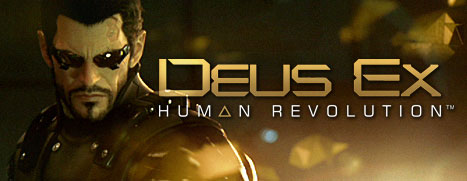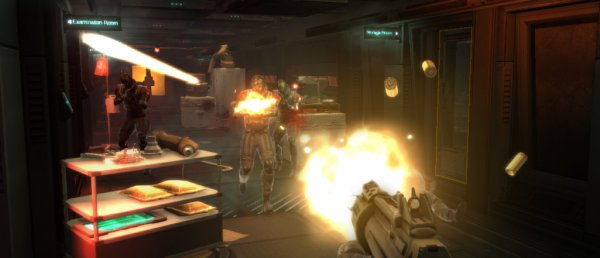 Some people love boss fights; others dread them. Commenter TheBlackHole25 is in the latter camp, and he'll explain why in today's Speak Up on Kotaku.
Some people love boss fights; others dread them. Commenter TheBlackHole25 is in the latter camp, and he'll explain why in today's Speak Up on Kotaku.
Does anyone else here really dislike boss fights? I don't know why this is the case, but I always enter boss fights with a feeling of dread. And the dread is not the cool kind of dread filled with tension, excitement, and anticipation. It's the dread of feeling like "Oh great, a boss I have to slog through".
I'm certain that my dislike for them stems from the fact that most of them just really break the flow of the game so much. It's not the extra challenge that or the prospect of dying a million times that irks me, it's just that so many times the boss fight is so different from the game I've been playing.
I can't help but bring up Deus Ex: Human Revolution and its boss fights, as it's pretty much the poster child for this. However, this feeling extends to a ton of other games I've played.
I hate when you play the game a certain way, doing whatever it is you need to do using your well-honed techniques and skills... and then you get to a boss fight and suddenly the game becomes a pattern-discovery game sprinkled with a lot of deaths until you find the pattern.... that really encapsulates a majority of the bosses out there.
Here are the most common types to me:
Type A: Look for its shooting/movement patterns, watch for when its OBVIOUS weaknesses are exposed, when those OBVIOUS weaknesses are present, and pummel with weapons.
Type B: Run around like an idiot until the boss finally decides to stop shooting at you (for no reason at all) or until the boss stops running around in its "invincible" form (why would it ever STOP using its invincible form?). When that happens, shoot back for three seconds. Lather, Rinse, and Repeat.
Type C: Hit all the proper switches, hooks, platforms, or buttons to cause some environmental event that lets you indirectly kill the boss.
It's like I'm playing a puzzle game with lots of deaths. So many of them just break the flow of the game to me and sometimes I'd honestly like to just not have boss fights at all. I don't mind the CHALLENGE of the encounter... instead, it just feels so contrived to me. Really, these days, with such well-constructed and immersive worlds present in games now, the idea of "bosses" feels so artificial to me. (Especially human bosses that for some inexplicable reason have 100X the amount of hit points as other humans in the same world.)
Don't get me wrong, there are some wonderful boss fights out there that are well-designed, challenging, and use the skills you've learned through the course of the game to maximum effect. However, I just find the majority of bosses out there just break the flow of the game so much and are so out-of-place, I'd really prefer to not have them at all.












 Deus Ex: Human Revolutions’s first piece of expansion DLC turns up on the 18th, for the price of $14.99 USD, €10.99, or £8.99. I’ve been having a bit of a play, and I’ll be able to tell you a bit more – while attempting to dodge spoilers (there are few quite stealthy ones, but nothing fatal) – below.>
Deus Ex: Human Revolutions’s first piece of expansion DLC turns up on the 18th, for the price of $14.99 USD, €10.99, or £8.99. I’ve been having a bit of a play, and I’ll be able to tell you a bit more – while attempting to dodge spoilers (there are few quite stealthy ones, but nothing fatal) – below.> 